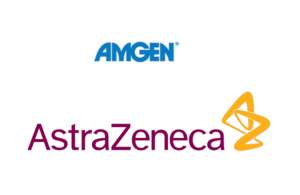 Amgen and AstraZeneca have announced that the experimental monoclonal antibody tezepelumab demonstrated a clinically meaningful reduction in annualized asthma exacerbation rate (AAER) in severe, uncontrolled asthma patients. In the NAVIGATOR Phase 3 trial, the drug led to a 56% reduction in AAER over 52 weeks when used as part of the standard of care.
Amgen and AstraZeneca have announced that the experimental monoclonal antibody tezepelumab demonstrated a clinically meaningful reduction in annualized asthma exacerbation rate (AAER) in severe, uncontrolled asthma patients. In the NAVIGATOR Phase 3 trial, the drug led to a 56% reduction in AAER over 52 weeks when used as part of the standard of care.
The two companies recently presented a poster related to the NAVIGATOR study at the American Academy of Allergy, Asthma & Immunology annual meeting with an investor call following.
Physicians in the investor call were upbeat about the use of tezepelumab as a first-line therapy and patients with low levels of eosinophil, a type of white blood cell.
UBS analysts have estimated that peak sales of the drug would be $1.6 billion.
Results from the NAVIGATOR study were published in the Journal of Allergy and Clinical Immunology.
In December, Amgen and AstraZeneca announced a setback with their SOURCE trial involving tezepelumab. The Phase 3 trial found that the drug did not reduce asthma patient’s dependence on corticosteroids over 48 weeks compared to placebo.
The medical experts in the aforementioned investor call were not discouraged by the SOURCE trial results. The less-than-stellar results could have resulted from trial design problems, and Amgen and AstraZeneca could potentially conduct a second study in a similar vein.